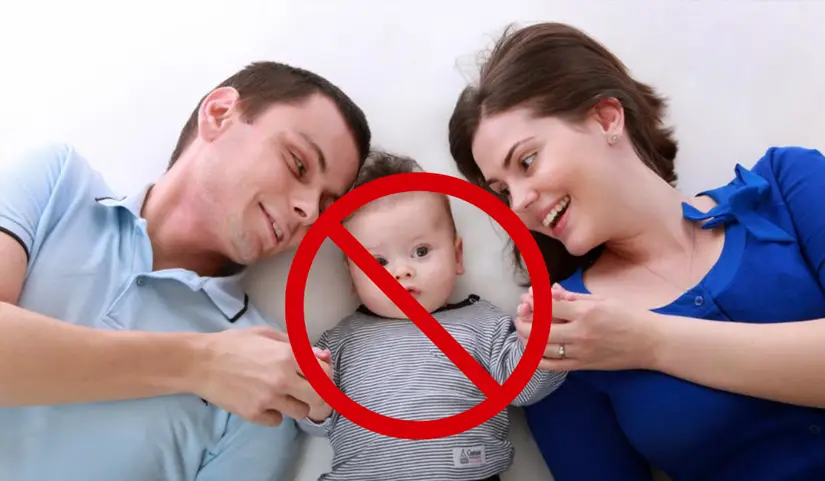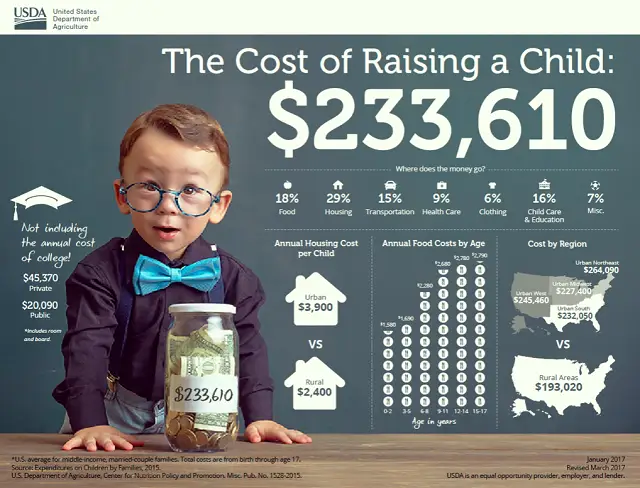Why Young Adults Aren’t Having Kids

Starting a family used to be a rite of passage for young couples, immortalized with the line from the jump rope rhyme: “Then comes baby in a baby carriage.” But you’ll be hard pressed to find a baby in a carriage today. The nationwide birth rate plummeted between 2007 and 2022, falling from 14.3 births per 1,000 people to 11.1, a nearly 23 percent drop, according to new CDC data. The reasons behind those numbers are complex and contentious, and worth exploring, especially since population collapse has major social and economic consequences.
Historically, trends indicate that the more prosperous a society becomes, the fewer children its members have. Declines in childhood mortality also have led to smaller families. And the thinking goes that the more well-off you are, the less you need your children to support you in your old age. https://www.statista.com/statistics/1037156/crude-birth-rate-us-1800-2020/Birth rates fell in the United States until the Baby Boom when they peaked to 24.1 live births per thousand people (or a 2.4% of the population was born that year) and has fallen ever since. But in the last five years, it has seen a sharper decline.
High Cost of Living Blamed
According to a Newsweek poll, it’s the high cost of living that’s deterring young people from taking the parental plunge. In a Redfield & Wilton Strategies survey commissioned for Newsweek, 1,500 American adults, more than half of the Gen Z and Millennials polled between the ages of 18-34 said they would consider having a family if the cost of living was lower. Indeed, Americans are dishing out more every month on necessities, including rent, food and transportation. The cost for a middleclass family to raise a child from birth to eighteen, is $233,610, according to the U.S. Department of Agriculture, which annually tracks the figure. In this Institute for Family Studies opinion piece, the author argues that this grossly exaggerates the financial burden of having children and is designed to actually dissuade young adults from doing so.

The leftists at the USDA don't want you to have to children--isn't it obvious?
“When young people say they are worried about having a child or getting married, I urge them to consider that they don’t need to put off their dreams because of pressure to make a display of wealth,” writes Kendra Holten in her story “The True Cost of Raising a Child.” She and her husband choose to live in a rural area to save costs and had a courthouse wedding. She stays at home to care for her three young children.
Cultural trend

Image by Freepik
Lower birth rates can also be attributed to more people using contraception, and more women in the workforce. But cultural issues are at play here as well. More young people identifying as LGBTQ than ever before should also be on the list. In a Gallup survey from earlier this year, 7.2 percent of U.S. adults identified as lesbian, gay, bisexual, transgender or something else. While the number flatlined in 2022 (after rises in the last two years) it is still double what it was a decade ago. What stands out is the number of adults of childbearing age who identify as LGBT: 19.7 percent of Gen Z (18 to 25 when surveyed); 11.2 percent of Millennials. (Older generations reported 3.3 percent or less.) And while the data show most who identify as LGBT say they are bisexual; it still doesn’t seem like an ideal situation for someone considering parenthood.
Narcissism and the climate
Some say extended adolescence, and coddled young adults could be a reason. According to this UnHerd survey, only 55 percent of Gen Z and Millennials want kids. One in four of those in the 18-34 group surveyed nixed parenthood entirely and cited “wanting time for themselves” as the most common reason.
And if you’re a reader of the Atlantic Magazine or similar fare, you’ll believe that it’s the climate’s fault. This poll from Morning Consult claims that 1 in 4 childless adults blame climate change for their reason not to have children. In 2019, Miley Cyrus told Elle Magazine she vowed not to have a baby on this “piece-of-shit planet.” Others like Rep. Alexandra Ocasio-Cortez have had similar rantings. Climate activists argue that Earth is overpopulated and doomed by too many people emitting carbon dioxide. According to Malthusianism theory, named after Thomas Robert Malthus, when population grows faster than agricultural production, it leads to famine or war, triggering poverty and depopulation.
Other economists warn about the opposite: population implosion, when the replacement rate of a population falls below the number required to keep the population stable. Think Japan. It can stagnate an economy and put strains on health care with fewer workers to care for an aging population. In developed countries, such as the United States the replacement rate is 2.1. That’s the average number of children each woman would have to have for the country’s population to replace itself from one generation to the next, according to the National Institutes of Health.
Since Covid and the rollout of the Covid vaccines, the fertility has gotten worse, worldwide. So, if you think it’s only a problem in Asia, think again. We’re counting on Generation Alpha (born between 2013 and 2025) to pull us out of this mess.
In Conclusion
At Mammoth Nation we are pro-baby and believe it is the most incredible gift from God that we can ever receive! We hope more young people begin to understand this and realize that there’s not a corner office in Manhattan that could ever provide more meaning and purpose than what successfully parenting a child can bring to this world. We agree with author, Kendra Holton and are grateful to know that there are young people out there who are not afraid to sacrifice the superficial in order to start a family. We understand it is a costly endeavor at this time in history, but if more young people deny themselves the experience of parenthood, they are also denying the continuation of our society—everyone loses.
For any of our members who have kids or have any on the way, check out some of our great products for kids and growing families!
JOIN MAMMOTH
Shop your values and save!
Categories
Popular Tags
Archives
- February 2025 (2)
- January 2025 (11)
- December 2024 (10)
- November 2024 (8)
- October 2024 (7)
- September 2024 (6)
- August 2024 (7)
- July 2024 (7)
- June 2024 (6)
- May 2024 (8)
- April 2024 (5)
- March 2024 (7)
- February 2024 (9)
- January 2024 (6)
- December 2023 (5)
- November 2023 (8)
- October 2023 (5)
- September 2023 (4)
- August 2023 (8)
- July 2023 (5)
- June 2023 (5)
- May 2023 (6)
- April 2023 (5)
- March 2023 (3)
- February 2023 (2)
- January 2023 (5)
- December 2022 (6)
- November 2022 (7)
- October 2022 (2)